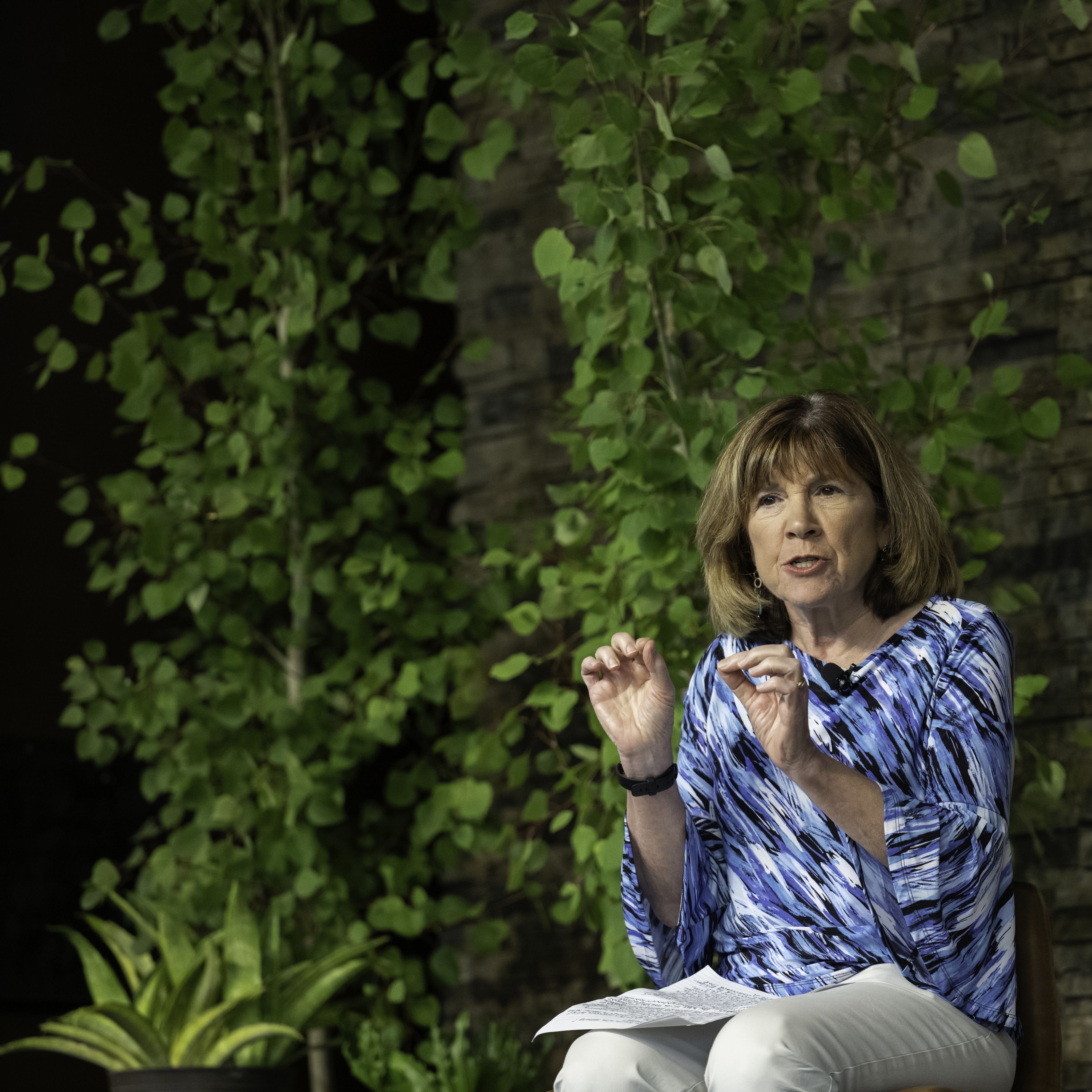Dream + Do
This summer, Aspen VisionXChange gathered leaders with a shared North Star from across the country.
These are the solutions they shared.
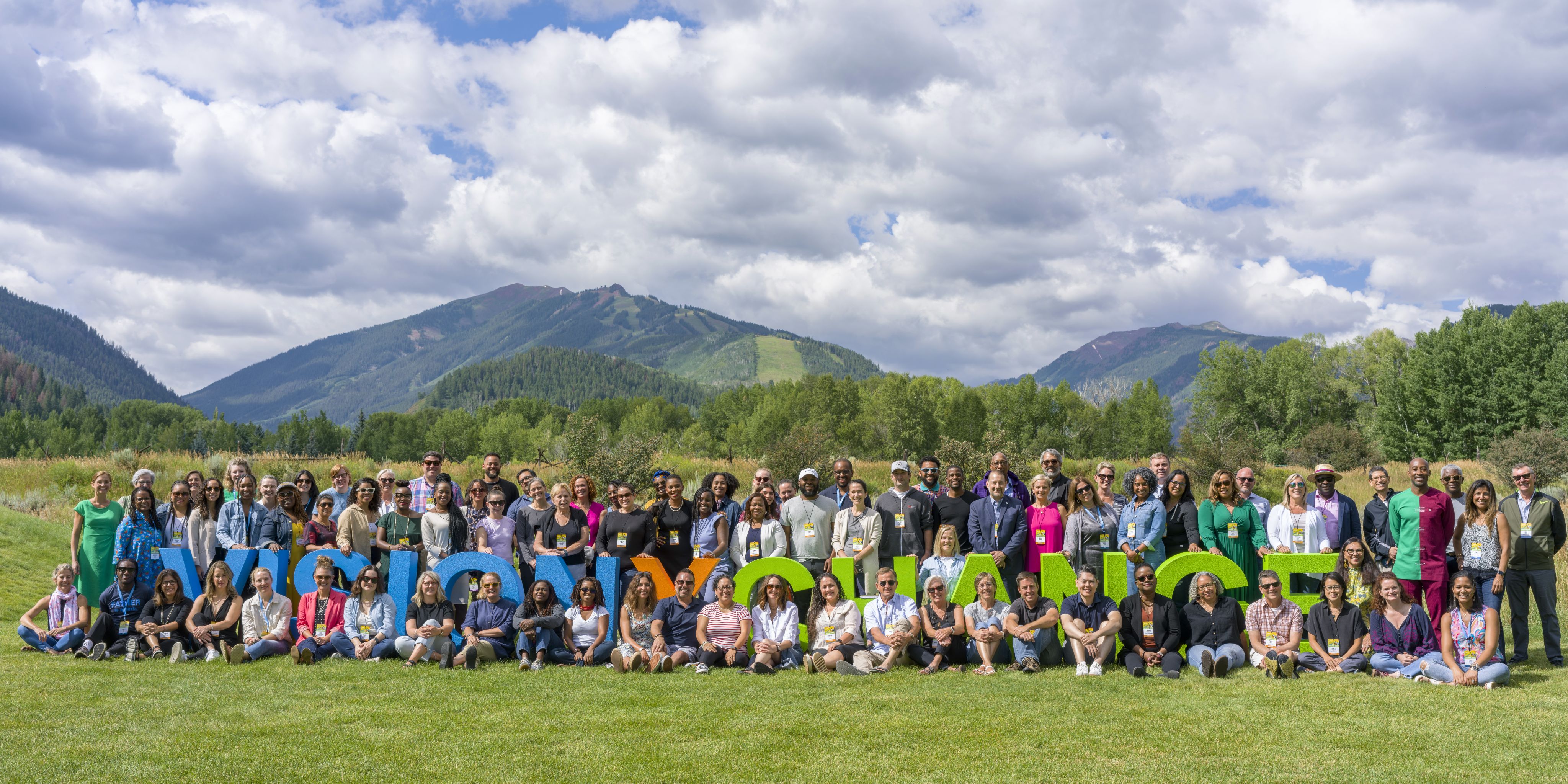
The first thing you notice is the camaraderie. It’s a warm Sunday evening in July, and the Doerr-Hosier Center on the Aspen Meadows campus is teeming with energy. More than 100 Ascend Fellows are hugging and laughing, eagerly anticipating the week ahead. Some are meeting for the first time; other relationships span more than a decade. Regardless, each person is here for the same reason: Aspen VisionXChange.
Over four days last summer, Ascend at the Aspen Institute convened dreamers and doers who are advancing economic mobility and well-being for children and families. As Ascend founder Anne Mosle explained on the opening night, “We are truly at a generational moment of opportunity and obligation — to realize intergenerational family prosperity and well-being with justice, joy, and respect for lived experience and expertise at the center.”
If that aspiration sounds ambitious, it’s because it is. Ascend Fellows have been embracing this opportunity for more than a decade. As bold leaders reimagining the levers of power, they are tackling the systemic problems often deemed intractable.
At VisionXChange, Ascend Fellows were joined by parent advisors and community leaders to show what can happen when you don’t settle for the status quo. Here are four inspiring solutions from the VisionXChange stage:
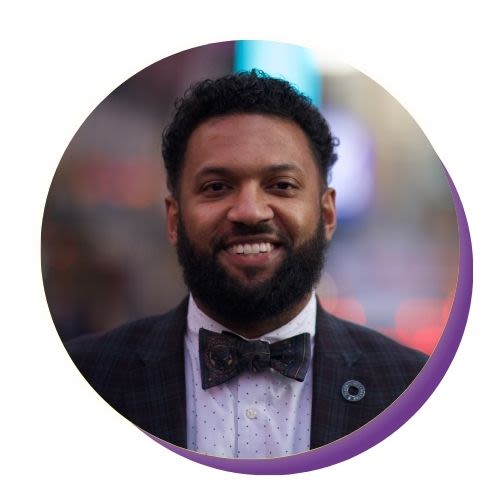
Dr. Nathan Chomilo | 2022 Ascend Fellow
Medical Director, Medicaid and MinnesotaCare, Minnesota Department of Human Services
Solution: Building a healthier Minnesota by re-centering communities most impacted by structural racism.
Dr. Nathan Chomilo is on a mission to eliminate health disparities in Minnesota. Doing so, he explains, requires reconstructing systems with racial equity at the foundation.
Our work is leading to conversations about how this community-guided approach and the policies it creates can help guide Medicaid policy across the country. And it's also clear that policies that come from advancing community-centered priorities will positively impact everyone. By focusing on communities most impacted by structural racism, we don't find a zero-sum game. In Minnesota, we've succeeded in extending continuous coverage to all 650,000-plus children enrolled in Medicaid. … As we think about how we can reconstruct health equity, let us lead with love for all our communities, with accountability to them and each other.”
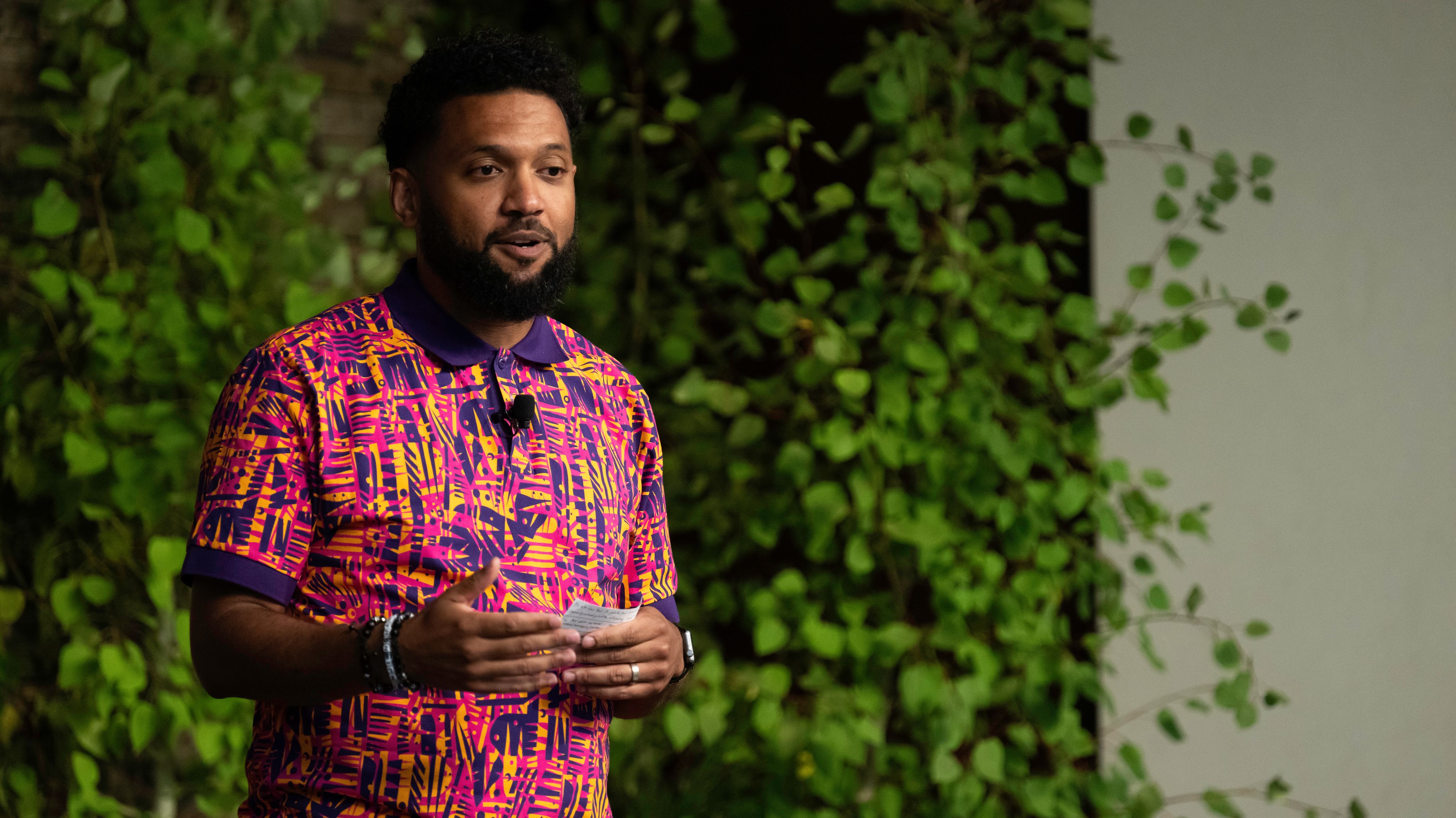
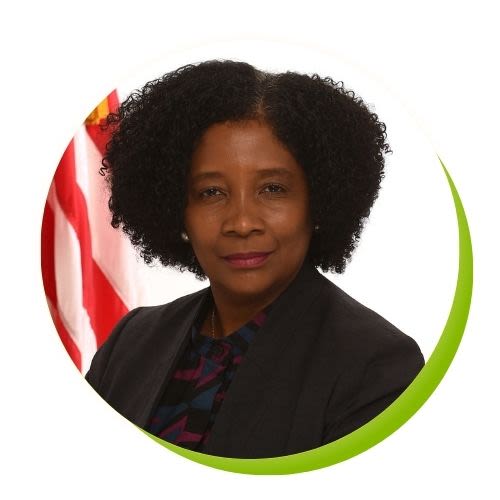
Aysha E. Schomburg | 2021 Ascend Fellow
Associate Commissioner, Children's Bureau (CB), Administration on Children, Youth and Families
Solution: Putting federal funding into the hands of community leaders
Before making policy changes, Aysha E. Schomburg knows that it’s essential to listen and learn from people who are closest to and most affected by the current policies. Sometimes, Aysha explains, that requires funding approaches that fundamentally shift power and accountability, like granting up to $4 million for community-led initiatives that address racial bias and disparity in the child welfare system, which is exactly what ACF did in 2023.
“I was in a meeting with some parents, and one said to me, ‘You need to put the money in the community. It's always, we're gonna give you money to do this. Let us decide in our communities.’ So when the opportunity came around, I asked about a particular sort of vehicle to do a discretionary notice of funding opportunity called a field-initiated approach. And it's a vehicle that apparently no one has used in a really long time. And what it is, is that we put the money out there, and we say to the communities, ‘You tell us how you would use it; you tell us what partnerships you would want to form; you tell us what problem you would want to solve.’”
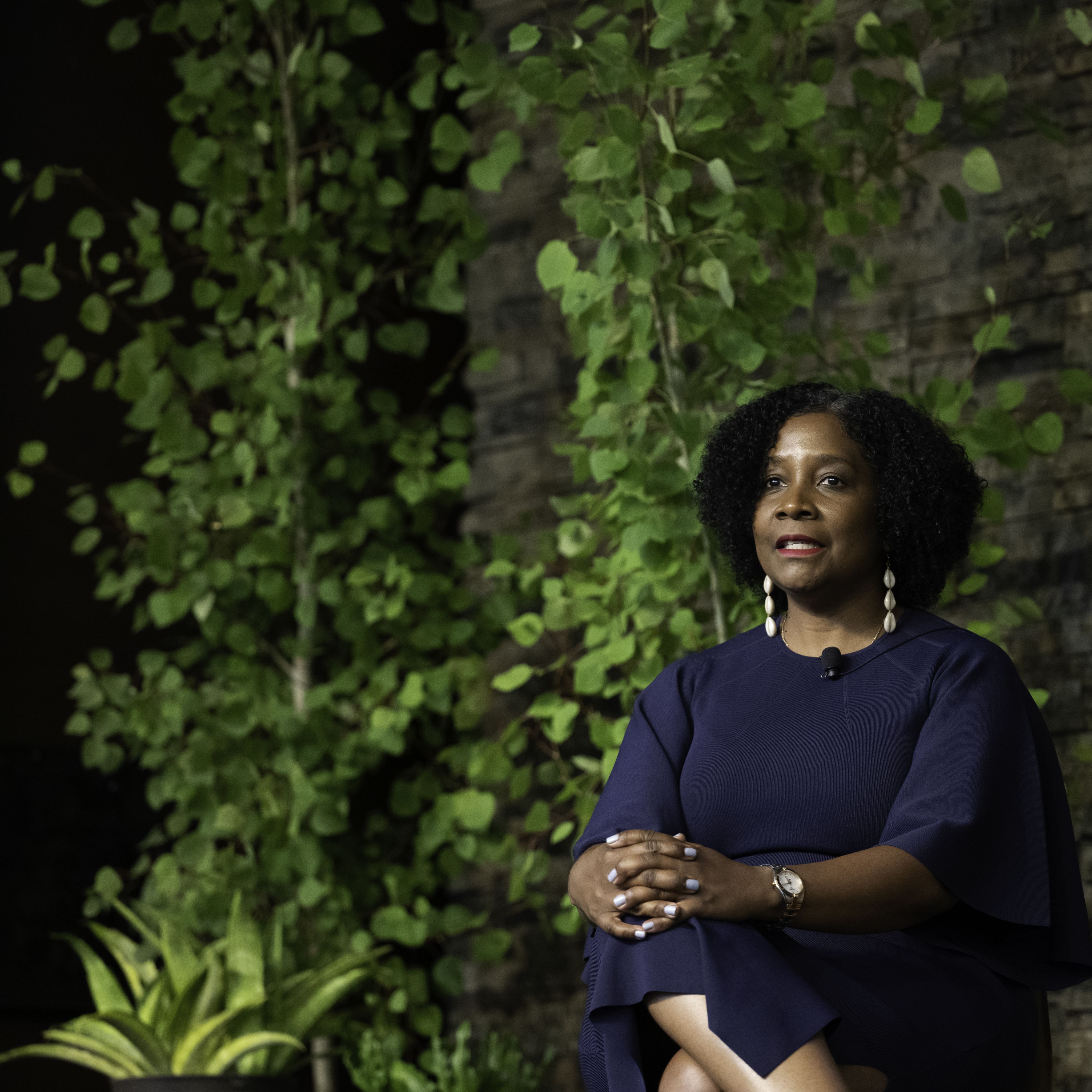
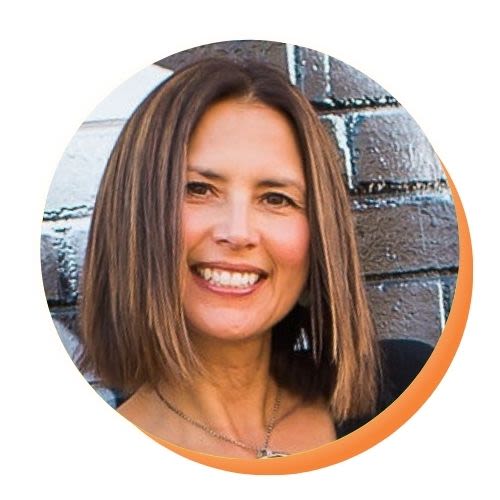
Dr. Michelle Sarche | 2018 Ascend Fellow
Professor, University of Colorado – Denver
Solution: Healing trauma through Indigenous language and wisdom
A tribal member of the Lac Courte Oreilles Band of Ojibwe, Dr. Michelle Sarche has worked with American Indian and Alaska Native communities for more than 25 years. During that time, she’s seen the power of answering the call.
“Indigenous people today bear the legacy of intergenerational trauma. But we are also heirs to intergenerational strength. Our cultural teachings embodied in our languages are one of the main conduits through which this strength flows. … Aanikoobijigan is the Ojibwe word for both great-grandparent and great-grandchild. And in it resides a profound teaching about the deep connection across generations. ... Through our actions, we have the power to influence the health and well-being not only of the generations that will follow us, but also of those who have preceded us. As I am summoned to answer the call here today, and every day, it is this word that inspires me to do what the moment asks of me.”
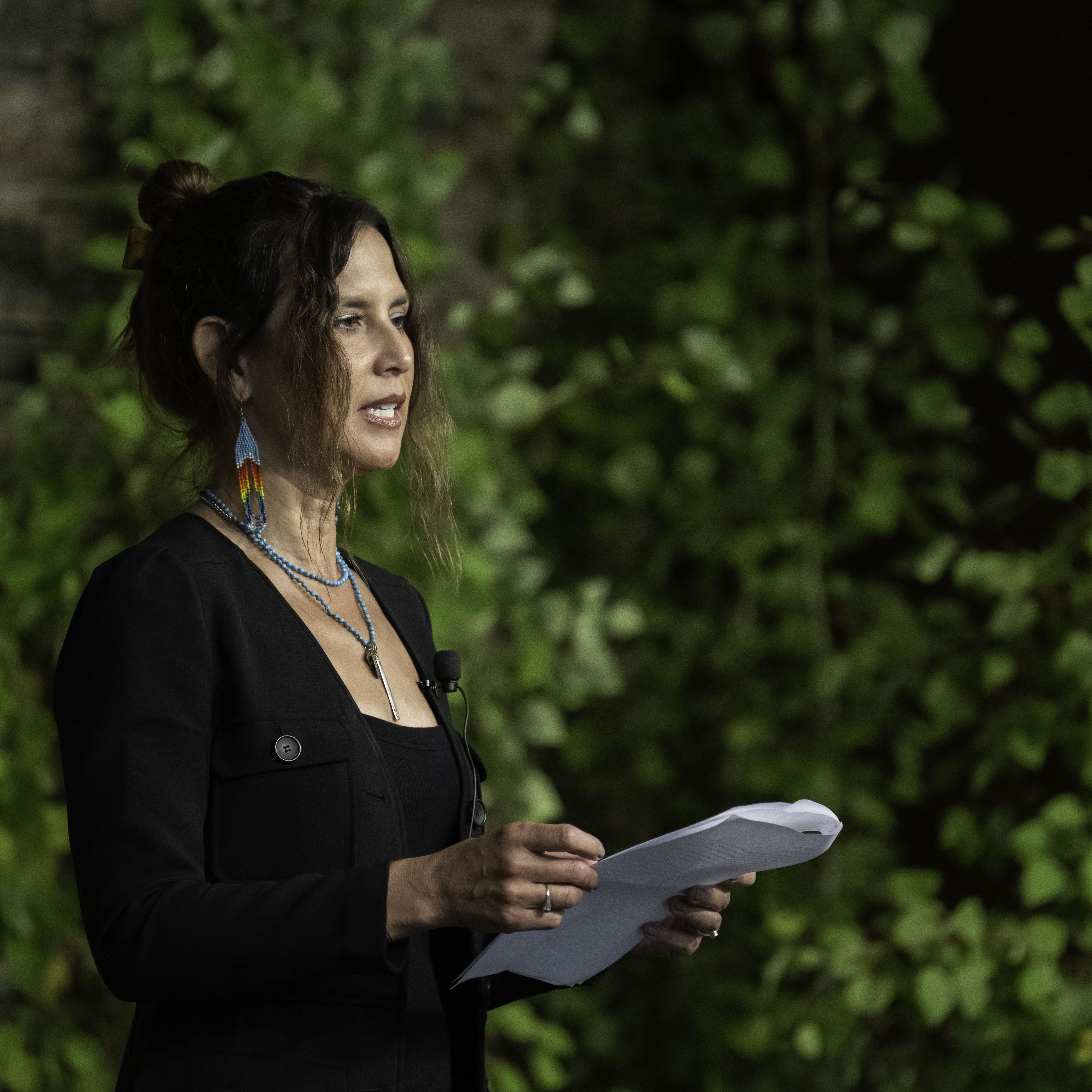
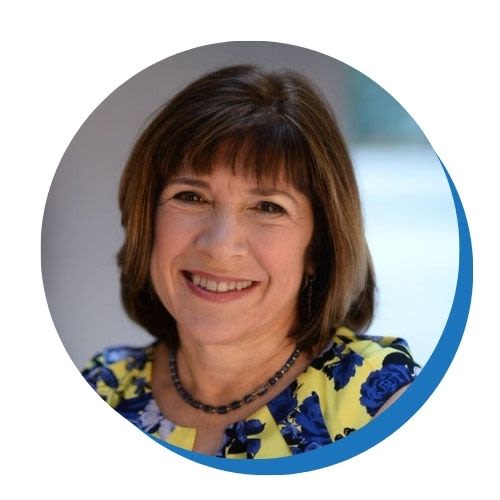
Andrea Levere | 2012 Ascend Fellow
Founder and CEO, Capitalize Good
Solution: Embracing enterprise capital to fund nonprofit missions
After spending three decades focused on building wealth at the household level, Andrea Levere’s work is now focused on building wealth for nonprofits so they can continue their work for families. To do that, she implores us to reframe how we think about nonprofits.
“Nonprofits are enterprises. They need the same kind of long-term flexible capital that for-profit companies need, but they need it even more because they are solving problems the market cannot solve. They need unrestricted, multi-year funding to build the organizational infrastructure, invest in human capital, and finance the innovation necessary to achieve their intended impact. With commitments for long-term funding, nonprofit leaders can truly look ahead and plan for the future with confidence. We call this type of funding ‘enterprise capital.’”
